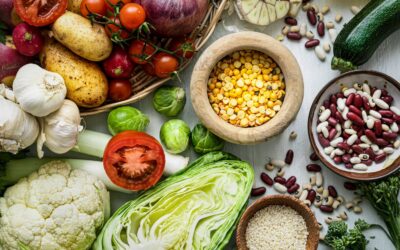Emerging research highlights polyphenols, naturally occurring compounds in foods like berries, green tea, and dark chocolate, as potential allies in the fight against Parkinson’s disease. These compounds are known for their antioxidant and anti-inflammatory properties, making them of particular interest in neurodegenerative disease management. This blog explores the role of polyphenols in combating oxidative stress and inflammation, both of which are pivotal in the progression of Parkinson’s disease.
The Neuroprotective Effects of Polyphenols
Polyphenols are powerful antioxidants that scavenge harmful free radicals in the body, reducing oxidative stress and cellular damage. This is particularly relevant for Parkinson’s disease, where oxidative stress contributes to the degeneration of dopaminergic neurons. Studies have suggested that diets rich in polyphenols can enhance brain health and potentially slow the progression of neurodegenerative diseases, including Parkinson’s.
Combatting Inflammation with Polyphenols
In addition to their antioxidant capabilities, polyphenols exert significant anti-inflammatory effects. Chronic inflammation is a hallmark of many neurodegenerative diseases and can exacerbate neuronal damage. By modulating inflammatory pathways, polyphenols can help protect the brain from further damage, offering a promising avenue for Parkinson’s disease management.
Incorporating Polyphenol-Rich Foods into Your Diet
To harness the potential benefits of polyphenols, consider incorporating more polyphenol-rich foods into your diet:
- Berries: Strawberries, blueberries, and blackberries are excellent sources.
- Green Tea: Known for its high polyphenol content, particularly epigallocatechin gallate (EGCG).
- Dark Chocolate: Choose varieties with high cocoa content for maximum benefits.
Polyphenols offer a promising nutritional approach to managing Parkinson’s disease, thanks to their antioxidant and anti-inflammatory properties. Incorporating polyphenol-rich foods into your diet can be a delicious and healthful way to potentially mitigate some of the disease’s effects.
Curious about integrating polyphenol-rich foods into your Parkinson’s disease management plan? Book a consultation with me to tailor a nutritional strategy that leverages the power of polyphenols for your health and well-being.
Reference:
Guo et al (2018) Damage to dopaminergic neurons by oxidative stress in Parkinson’s disease (Review) 2018. Pages: 1817-1825. https://doi.org/10.3892/ijmm.2018.3406




